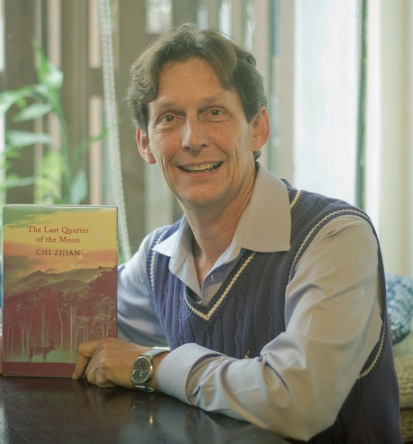Posts
By Bruce Humes, July 21, '15
As of July 22, at least 238 people have been detained or questioned since the nationwide clampdown on China's attorneys began, according to the Hong Kong-based China Human Rights Lawyer Concern Group, reports The Guardian.
That sounds worrisome indeed!
But I'm also interested in the adjective applied to describe the apparently futile efforts of critics of the crackdown as noted below:
China’s state-controlled media have rejected claims Beijing is waging a war against civil society. “Critics should first get the facts right, get to the bottom of the problem before embarrassing themselves in another unavailing episode of finger-pointing,” an editorial by Xinhua, Beijing’s official news agency, argued this week.
My question: What's the Chinese for "unavailing"? I assume the Xinhua news item was translated from the Chinese original.
I get the feeling this term may be appearing more often . . .
By Bruce Humes, February 9, '15
Speaking recently at the China Development Forum in London, Goran Malmqvist (马悦然), a sinologist and Emeritus Professor at Stockholm University, said that "poor translations and little attention Chinese literature received from Western publishers are the major obstacles for Chinese culture to go global."
More…
By Bruce Humes, January 13, '15
You may recognize the name of Sheng Keyi (盛可以) as the novelist who wrote Northern Girls (北妹) and more recently Death Fugue (死亡赋格), both translated into English. But you might not know that she is a budding artist as well. She took up painting in 2013. Check out her brushwork here.
You are invited to attend the exhibition, comprising 26 tableaux, as well as the launch of her latest novel, Savage Growth (野蛮生长), which also features her own illustrations:
Date/time: 3:00-5:00 pm, January 17
Venue: New Millenium Gallery (北京千年时间画廊)
Curator: Zhang Siyong (张思永)
Academic Support: Feng Tang (冯唐)
Special Guests: Li Jingze (李敬泽), Liu Zhenyun (刘震云), Wu Hongbin (武洪滨), Li Jian (李健), Li Xiuwen (李修文) and A Yi (阿乙)
By Bruce Humes, January 13, '15
In 贾平凹:只能是守株待兔, we learn that Jia Pingwa’s latest novel 老生 (Lǎo Shēng) topped Sina Online’s 2014 ranking of “ten great books” (新浪年度十大好书).
The report points out that despite his popularity in China, his novels are rarely translated. “Whoever is willing to translate [my books], I welcome to come and negotiate the rights. But if no one does, I don’t know where to go to find translators,” says the author himself, perhaps slightly exasperated at the lack of interest from overseas publishers.
As usual, this is a bit of an exaggeration. Several of his books have been translated into French, including the once-banned La capitale déchue (废都). But only one of his novels, Turbulence (浮躁, tr. Howard Goldblatt), appears on Amazon in English. So this is probably more about his failure to gain more prominence in the English-speaking world.
Thus the question: Given his reputation in China, why haven’t most of Jia Pingwa’s novels been translated into European languages?
By Bruce Humes, October 13, '14
In Books in the Turkish Stand in Frankfurt Book Fair, Turkish columnist Doğan Hızlan reports on Finland's neat marketing ploy at the just-finished 2014 Frankfurt Int'l Book Fair:
I also learned that in Finland there are 2.2 million saunas. They have carried this widespread sauna culture to the book fair. Reading sessions are being held in public saunas in Frankfurt. A Finnish author could bust into any sauna . . .
More…
By Bruce Humes, September 15, '14
When you have trouble moving product overseas -- and cash in your pocket -- you can always call on a classic strategy: take control of the distribution channels.
There are four traditional ways to do so: set up your own local firm; invest in a local firm; merge your firm with a local firm; or simply acquire an existing player in that market which owns a respected brand name.
Is China getting ready to do so in the publishing field, as part of its soft power push?
More…
By Bruce Humes, August 24, '14
Winners of the "2013 China International Translation Contest," co-hosted by the State Council Information Office, Chinese Writer Association and the China International Publishing Group, have been announced. According to 国际翻译大赛, the organizing committee provided 30 pieces of contemporary Chinese short stories from which to choose, and 1,006 renditions were received from over 30 countries in English, French, Spanish, Russian and Arabic.
More…
By Bruce Humes, June 13, '14
I recently made a number of suggestions on concrete steps that could help ensure greater success for the “campaign to take Chinese literature global.” They are detailed in Open Letter to China Literary Exports, Inc..
中华读书报 (China Reading Weekly) interviewed me about my proposal, including the establishment of a Translator-in-Residence program. If you'd like to read the interview (in Chinese), and see the part of the draft text that was deleted just before publication, visit 建议:建立 ‘驻地翻译基金’,积极征募外国翻译家到中国短期居住.
By Bruce Humes, May 14, '14
“ Dreams are so good. Why do we have to make them a reality? ”
What’s a young Tibetan stud to do for a living nowadays in a tourist hotspot like Lhasa? And what happens when his childhood dream—to hang out in the capital of a country called China—comes true?
In the just-published The Unbearable Dreamworld of Champa the Driver, author Chan Koonchung takes us on a rocky road from Lhasa to Beijing. Along the way he paints disturbing vignettes. An apartheid-in-the-making. The eerie death wish of a would-be self-immolator. The Kafkaesque “black jails” where provincial petitioners who dare air their grievances to the Beijing Mandarins are brutalized, then sent home.
If they’re lucky, that is.
More…
By Bruce Humes, March 14, '14
As the number of Chinese novels translated into English annually rises into the teens, here's a figure to contemplate:
" . . . 781 Japanese novels were translated and published in South Korea in 2012," according to Takayuki Iwasaki in Japan's Literati Impervious to Politics.
By Bruce Humes, October 11, '13
On October 31, Professor Tai Zaixi will speak on (Self) Censorship and the Translator-Author Relationship: The Case of Full Translations, Partial Translations, and Non-translations in the Chinese Context at HK Baptist U's Centre for Translation.
More…
By Bruce Humes, October 2, '13
In Nobel Win, Ho Ai Li of Singapore’s Straits Times notes that Mo Yan’s Nobel Prize—regardless of how his own writing is perceived abroad—is helping to spark interest in translated Chinese fiction. Since most of us won’t be able to get beyond the pay wall, I’ve selected three choice quotes from the article below. But pls resist the temptation to re-tweet Eric’s words on your Weibo account, as we’d hate to see his visa renewal application denied next time round . . .
More…
By Bruce Humes, September 28, '13
To help the nation recover the revolutionary spirit, a new – lightly edited for political correctness, or annotated perhaps? – version of Mao's Little Red Book will reportedly hit the shelves soon (Revamp):
The new version is due for release in November, just before the 120th anniversary of Mao's birth. Its chief editor, Chen Yu – a senior colonel at the Academy of Military Science – describes it as a voluntary initiative. "We just want to edit the book, as other scholars work on the Analects of Confucius… We don't have a complicated political purpose," said Chen.
Sounds innocent enough . . .
By Bruce Humes, March 22, '13
Murakami Haruki’s latest novel, his first major release since the 1Q84 trilogy in April 2010, goes on sale in Japan April 12. I haven’t found any hint of its name in English, but according to a report by Shi Chenlu at Chinanews.com (村上春树新长篇) , its (temporary) Chinese title is <没有色彩的多崎造和他的巡礼之年>.
Intriguingly, now the hunt is on for the Chinese translator. You may recall that the monopoly of long-time Murakami translator Lin Shaohua (林少华) ended abruptly when the contract for rendering What I Talk about When I Talk about Running was handed over to Shi Xiaowei (当我谈跑步时我谈些什么,施小炜译).
More…
By Bruce Humes, December 9, '12
It's true that the Western media, and not a few China hands, would like nothing better than for Mo Yan to have delivered a Nobel acceptance speech that criticizes China's censorship practices.
One could argue that this is a selfish if not downright childish desire.
His speech is now up in Chinese (讲故事的人), so we know that his speech contained nothing of the sort. He basically said that:
*** He perceives himself as a "storyteller" who was deeply inspired by the lives of those around him as he grew up in a small Shandong town
*** Recent criticisms leveled at him in fact have nothing to do with Mo Yan the writer
*** A writer should be judged by what he writes, not what he says -- or doesn't say -- about what he writes
More…



